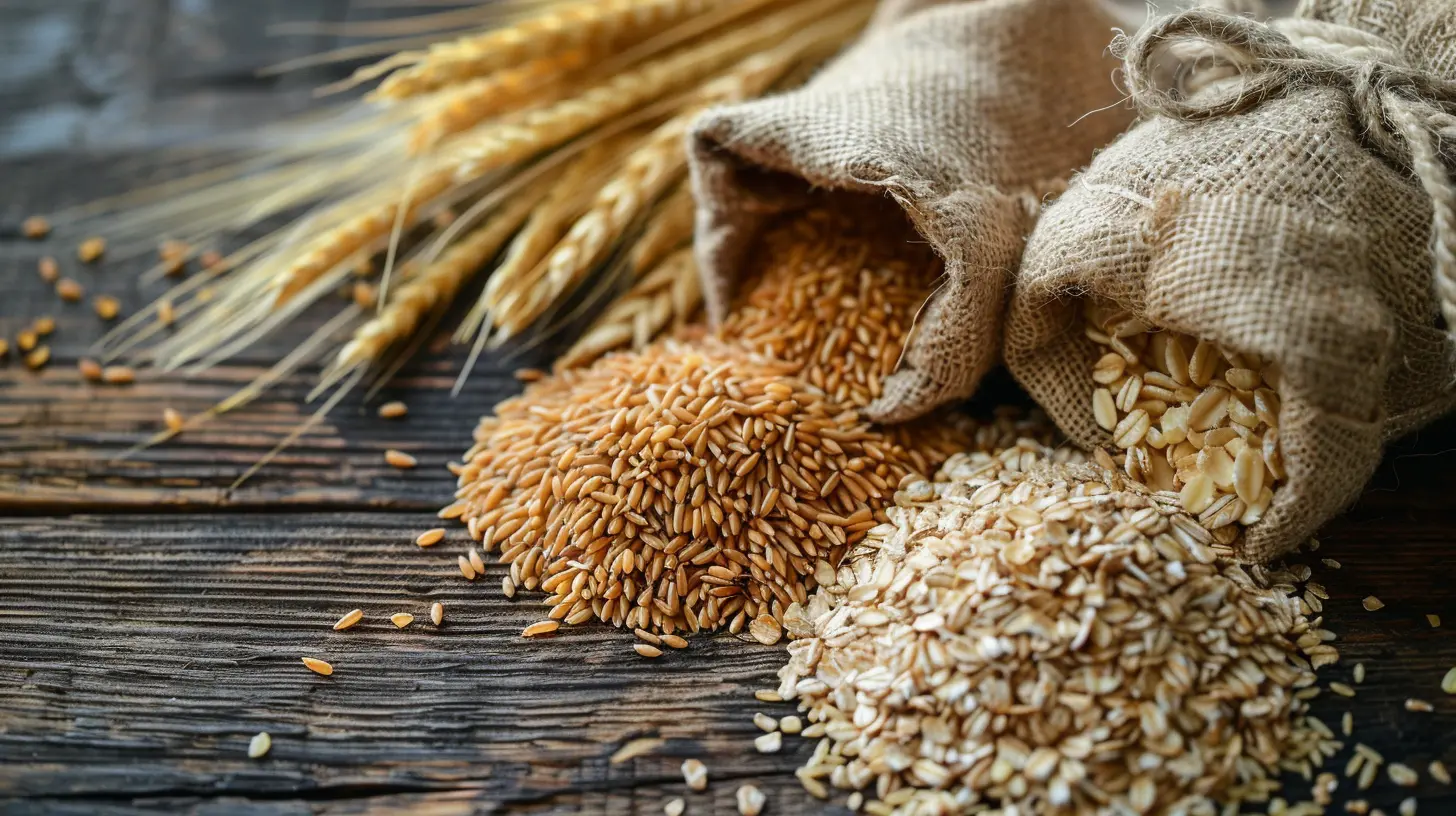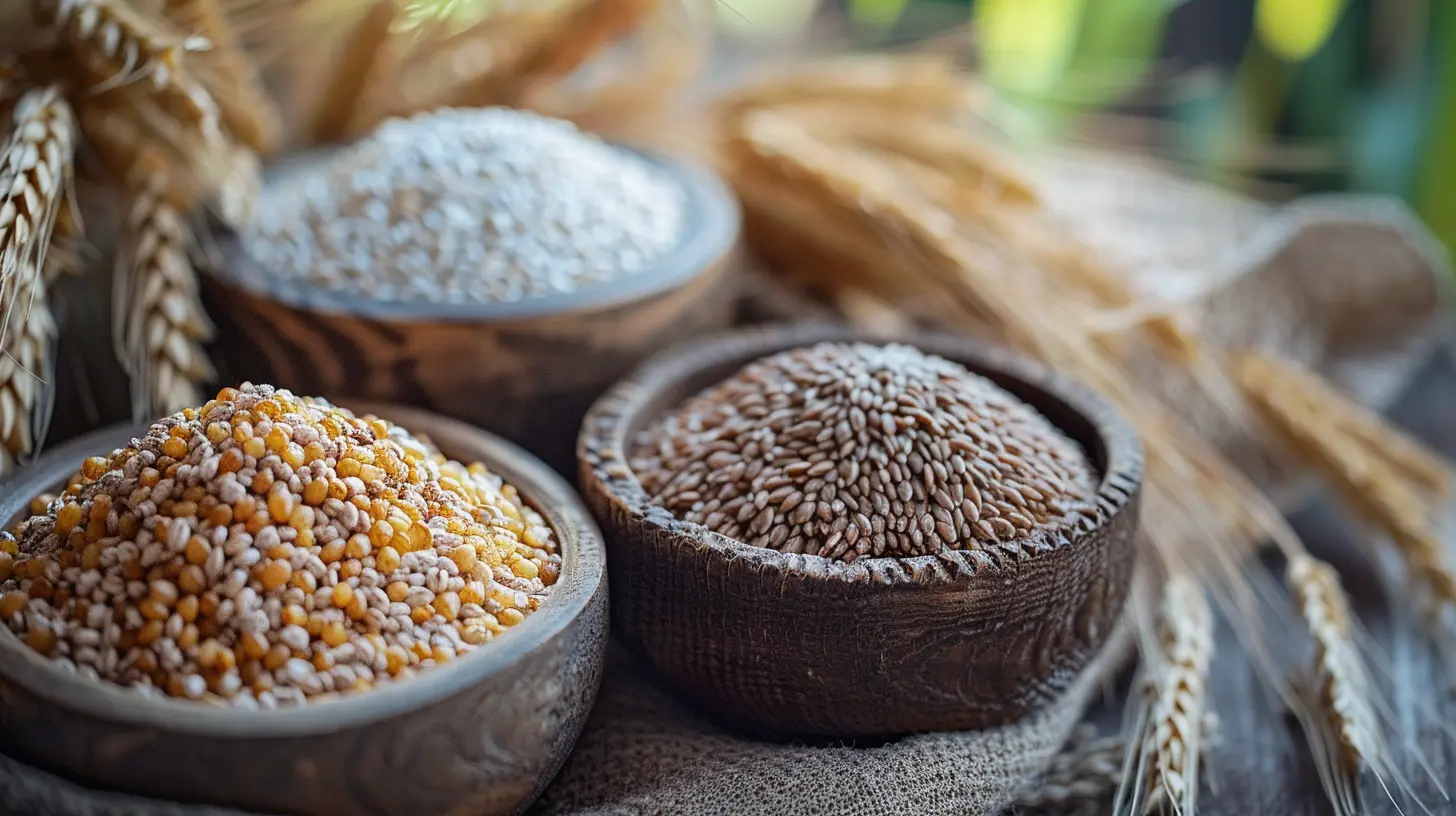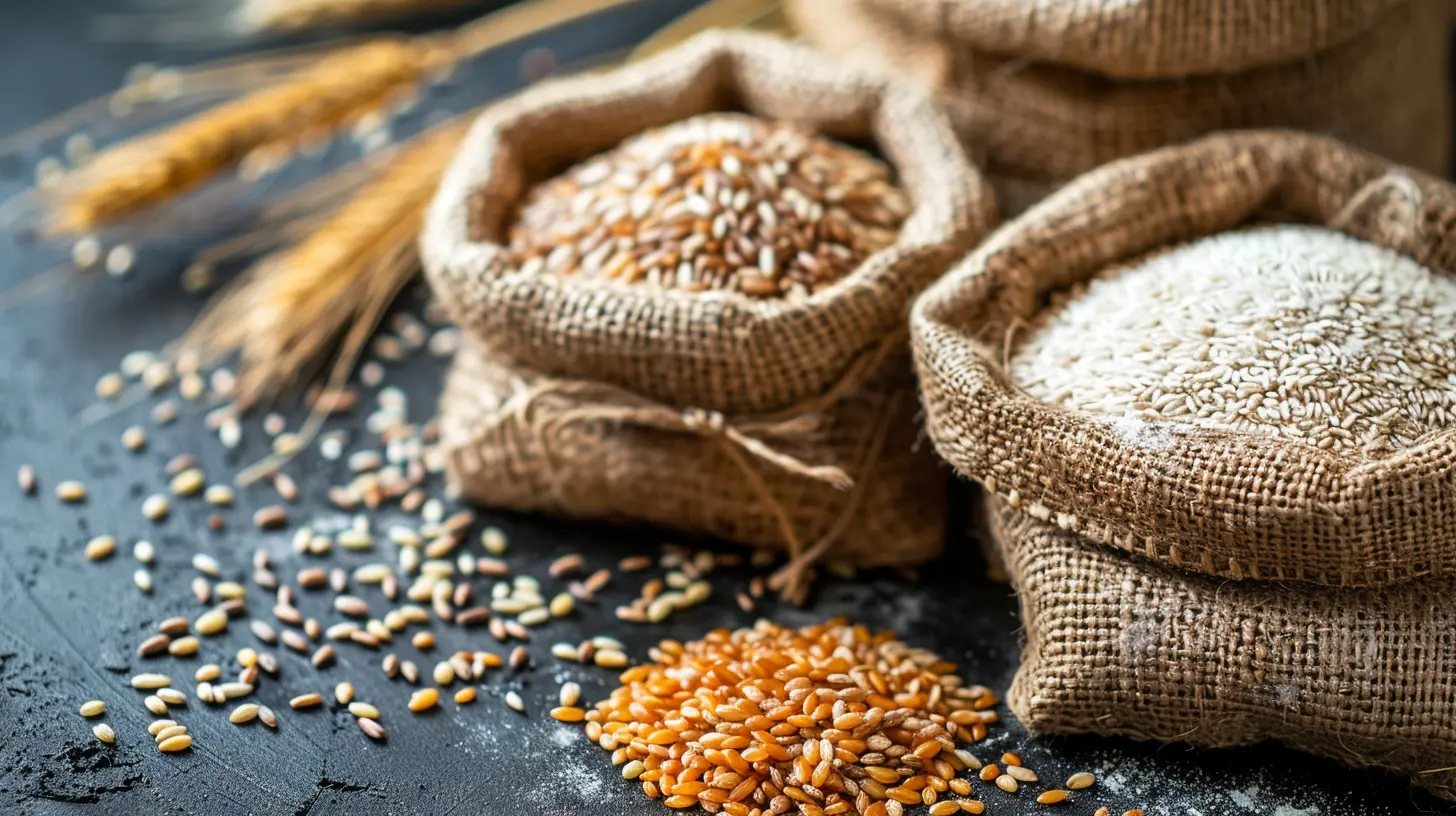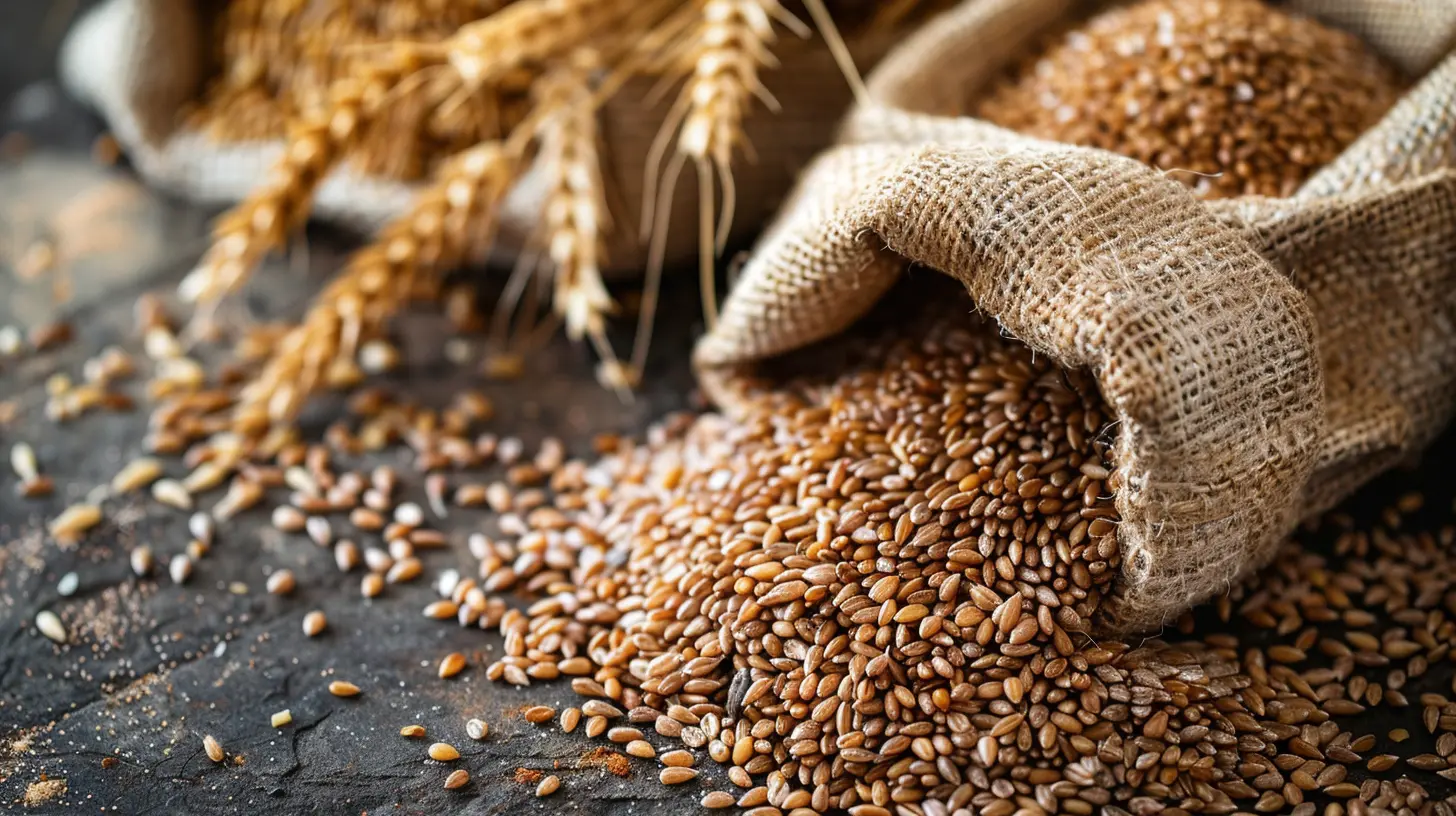Whole Grains vs. Refined Grains: What’s Better for Your Health?
18 July 2025
Grains are a staple in most diets around the world. From the bread in your sandwich to the rice on your plate, they fuel our bodies daily. But not all grains are created equal. When it comes to whole grains vs. refined grains, the debate isn't just about taste—it's about nutrition, health benefits, and their impact on your body.
So, which one should you be eating more of? Let’s break it down and see what’s better for your health.
What Are Whole Grains?
Whole grains are grains that contain all parts of the grain kernel—the bran, germ, and endosperm. This means they retain their natural fiber, vitamins, minerals, and antioxidants, making them a nutritional powerhouse.Common Whole Grains Include:
- Brown rice- Whole wheat
- Quinoa
- Oats
- Barley
- Buckwheat
- Millet
Because they’re unprocessed, whole grains offer a variety of health benefits, from better digestion to reduced risk of chronic diseases. 
What Are Refined Grains?
Refined grains, on the other hand, have been stripped of the bran and germ, leaving only the starchy endosperm. While this refining process gives the grains a finer texture and longer shelf life, it also removes a significant portion of their nutrients.Common Refined Grains Include:
- White rice- White bread
- Pasta made from white flour
- Regular breakfast cereals
- Pastries and baked goods
Although refined grains can still be enriched with vitamins and minerals, they lack the fiber and important antioxidants found in whole grains. 
Whole Grains vs. Refined Grains: A Nutritional Comparison
1. Fiber Content – Whole Grains Win
One of the biggest differences between whole and refined grains is fiber. Whole grains are packed with fiber, which helps with digestion, weight management, and controlling blood sugar levels.Refined grains, on the other hand, lose most of their fiber during processing. This means they’re more likely to cause blood sugar spikes and won’t keep you full for long.
Why Does Fiber Matter?
Think of fiber as the broom that sweeps through your digestive tract, keeping everything moving smoothly. It also slows down the absorption of sugar, preventing energy crashes.With whole grains, you’re getting sustained energy and better gut health, while refined grains may leave you feeling sluggish and hungry sooner.
2. Blood Sugar Control – Whole Grains Take the Lead
Whole grains have a lower glycemic index (GI) than refined grains. This means they release sugar into the bloodstream more slowly, preventing sudden spikes in blood sugar.Refined grains, on the other hand, act like a sugar bomb—quick to digest, but often leading to energy crashes and increased hunger cravings. Over time, these blood sugar fluctuations can contribute to type 2 diabetes and insulin resistance.
If you want steady energy and better blood sugar control, whole grains should be your go-to choice.
3. Nutrient Content – Whole Grains Are Packed with Goodness
When grains are refined, they lose essential nutrients, including:- B vitamins (such as B1, B2, and B3)
- Iron
- Magnesium
- Zinc
- Antioxidants
While some refined grains are "enriched" by adding back synthetic vitamins, they still lack the natural balance of nutrients found in whole grains.
Wouldn’t you rather get your nutrients the way nature intended? Whole grains deliver a complete package of health benefits, while refined grains often feel like an "empty-calorie" option.
4. Heart Health – Whole Grains Protect Your Heart
Several studies have shown that eating whole grains lowers the risk of heart disease. The fiber, antioxidants, and healthy fats found in whole grains help:- Reduce bad cholesterol (LDL)
- Lower blood pressure
- Improve overall heart health
Refined grains, however, have been linked to higher cholesterol, inflammation, and a greater risk of heart disease.
If you want to keep your heart happy and strong, whole grains should be a regular part of your diet.
5. Weight Management – Whole Grains Help You Stay Full Longer
Trying to lose weight or maintain a healthy one? Whole grains are your best friend.Because they’re high in fiber and take longer to digest, whole grains help you feel full for longer. This means:
✅ Less snacking
✅ Fewer cravings
✅ More controlled appetite
Refined grains, on the other hand, digest quickly and leave you craving more food. This makes them more likely to contribute to weight gain and overeating. 
Are There Any Benefits to Refined Grains?
While whole grains are clearly the healthier option, refined grains do have some advantages:✅ Easier to digest – Useful for people with sensitive stomachs or digestive issues.
✅ Softer texture – Many people prefer the taste and feel of refined grains.
✅ Quick energy – If you need immediate fuel after a workout, refined grains provide a fast source of carbohydrates.
However, these benefits don’t outweigh the long-term health risks. For most people, choosing whole grains regularly is the better option.
How to Include More Whole Grains in Your Diet
So, you’re convinced that whole grains are the better choice. But how do you make the switch? Here are some easy tips:1. Swap White for Brown
- Choose brown rice instead of white rice- Pick whole-wheat bread over white bread
- Opt for whole-grain pasta instead of white pasta
2. Start Your Day Right
- Have oatmeal for breakfast instead of sugary cereals.- Try whole-grain toast with avocado or nut butter.
3. Read Labels Carefully
Look for the word "whole" in ingredient lists. If it says “whole wheat” or “whole grain,” you’re on the right track. Avoid anything that just says “wheat” or “enriched flour”—that's a sneaky way of saying it's refined.4. Experiment With Different Whole Grains
Brown rice and whole wheat aren’t your only options! Try quinoa, farro, bulgur, or barley for variety.5. Bake Healthier
Love to bake? Try using whole wheat flour or oat flour instead of white flour in your recipes.Final Verdict: Whole Grains vs. Refined Grains
At the end of the day, whole grains are the clear winner when it comes to health benefits. They provide fiber, nutrients, and better blood sugar control, making them the smarter choice for long-term health.Refined grains, while easier on the stomach and tastier to some, offer little nutritional value and can contribute to weight gain, blood sugar spikes, and heart disease.
So next time you’re deciding between white or brown rice, whole-wheat or white bread, go for the whole version. Your body will thank you for it!
all images in this post were generated using AI tools
Category:
Healthy EatingAuthor:

Arthur McKeever
Discussion
rate this article
1 comments
Sonya McDowney
What a fantastic overview! Choosing whole grains over refined grains is a delightful way to boost health and energy. Here's to tasty, nourishing meals that make us thrive! 🌾✨
July 23, 2025 at 2:22 AM

Arthur McKeever
Thank you for your thoughtful comment! I'm glad you enjoyed the overview and share the enthusiasm for whole grains. Cheers to our health! 🌾✨


